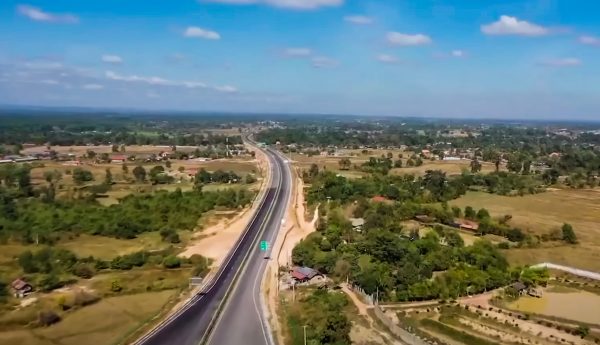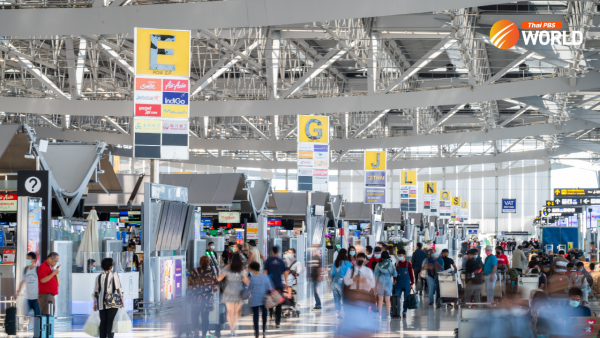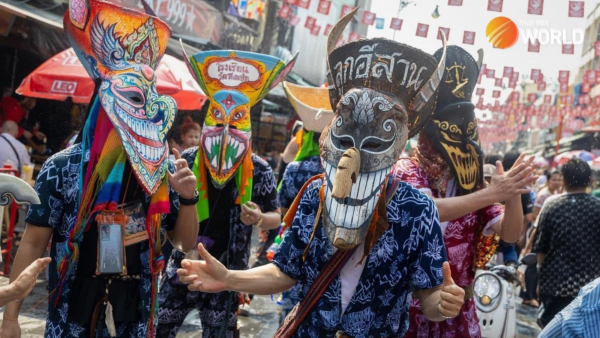Thailand has three runners in global race for COVID-19 vaccine

With COVID-19 vaccines the only hope for humankind’s recovery from the virus crisis, Thailand has joined the race to secure effective immunisation.
Coronavirus has so far infected at least 75.5 million people and killed 1.67 million others around the world.
In Thailand, which has seen a new outbreak, the virus has infected some 5,289 people and killed 60.
Dr Opas Karnkawinpong, director-general of the Disease Control Department, said the National Vaccine Board’s subcommittee on inoculation will soon come up with a plan to use the limited supply of vaccines with maximum efficiency.
“For example, to minimise COVID-19 deaths we may focus on high-risk groups first, and to minimisethe spread we may prioritise those with a high chance of transmission,” Opas explained. “Our healthcare workers will also be among the first to be vaccinated, since if they got infected, who would treat patients?”
On November 27, the Thai government signed a contract to pre-order 26 million doses of COVID-19 vaccine from AstraZeneca for Bt6 billion. However, since two shots are required, the 26 million doses will only cover 13 million people.
“Thailand’s population is close to 70 million. But for the foreseeable future, we can’t hope to get as many as 140 million doses of vaccine [needed],” Opasadmitted.
Efforts to secure COVID-19 vaccine
Thailand has been seeking ways to secure vaccines from several different sources, with the AstraZeneca deal being just one of the three approaches it has embraced.
The vaccine developed by Oxford University and its partner AstraZeneca looks set to win health regulators’ endorsement very soon. The UK’s public health watchdog could pass the vaccine as safe by early January, or even sooner, according to England’s chief medical officer Chris Whitty.
Under the contract between Thailand and AstraZeneca, the vaccine technology will be transferred to Siam Bio Science, a Thai firm, to produce 26 million doses.
As well as pinning hopes on AstraZeneca’s vaccine, Thailand has joined the World Health Organisation’sCOVAX project, which is a gateway to the Access to the COVID-19 Tools (ACT) Accelerator.
ACT Accelerator is a global collaboration to speed up the development, production and access to data on COVID-19 treatment and vaccines.
This project will help some 200 countries negotiate deals with vaccine makers and distribute available doses among member countries.
However, since Thailand is unsure as to when and how many doses it will get via COVAX, it has decided to start developing vaccines itself.
So far, Thai researchers are working on more than 10 vaccine prototypes using different technologies. Of these, only three of these have achieved satisfactory results at the animal-testing phase and are making preparations for human trials. The three most advanced prototypes have been developed by Chulalongkorn University (CU)’s Faculty of Medicine, CU Faculty of Pharmaceutical Sciences, and Bionet Asia Company Limited.
CU’s Faculty of Medicine has been granted more than Bt300 million by the National Vaccine Institute to research and develop the Chula-Cov19 mRNA vaccine. So far, tests on both guinea pigs and monkeys have been satisfactory and, if everything proceeds as planned, human trials for this prototype will kick off next April.
Funded by Australia, Bionet Asia researchers expect their vaccine prototype to enter the first and second phases of human trials in Thailand by early next year. It forecasts results from humans by late March.
Another promising prototype is being developed by Baiya Phytopharm, a start-up run by the CU Enterprise Foundation. It was founded by two lecturers from the CU Faculty of Pharmaceutical Sciences.
Baiya Phytopharm will collaborate with KingenBiotech of the King Mongkut’s University of Technology Thonburi and the Government Pharmaceutical Organisation to conduct human trials, which are expected by mid-2021.
Hit by a lack of government funding, BaiyaPhytopharm launched a public campaign to raise Bt500 million on December 18 and expects its vaccine to be ready for general use by late next year.
Calls for a better plan
Nimit Thienudom, director of the Aids Access Foundation, has urged the government to draw up a better COVID-19 vaccine procurement plan, for example by allocating funds through the National Health Security Office.
“COVID-19 vaccines should become part of the normal budget. Do not plan it on a year-by-year basis. It’s best to come up with a long-term plan, given the need to pre-order vaccines,” Nimit said. “Besides, the vaccine distribution should be fair and comprehensive.”
The prominent health activist also said the Disease Control Department should lay down guidelines on vaccination impact assessments.
Progress around the globe
On December 2, the United Kingdom became the first country in the West to approve a coronavirus vaccine. The vaccine developed by Pfizer and BioNTech SE was administered to nearly 140,000 people in the first week alone, Bloomberg said.
Several other countries, including the US, followed suit last week, with shots also being rolled out in China and Russia.
Last Friday (Dec18), the US also authorisedModerna’s vaccine for emergency use.
By Thai PBS World’s General Desk






